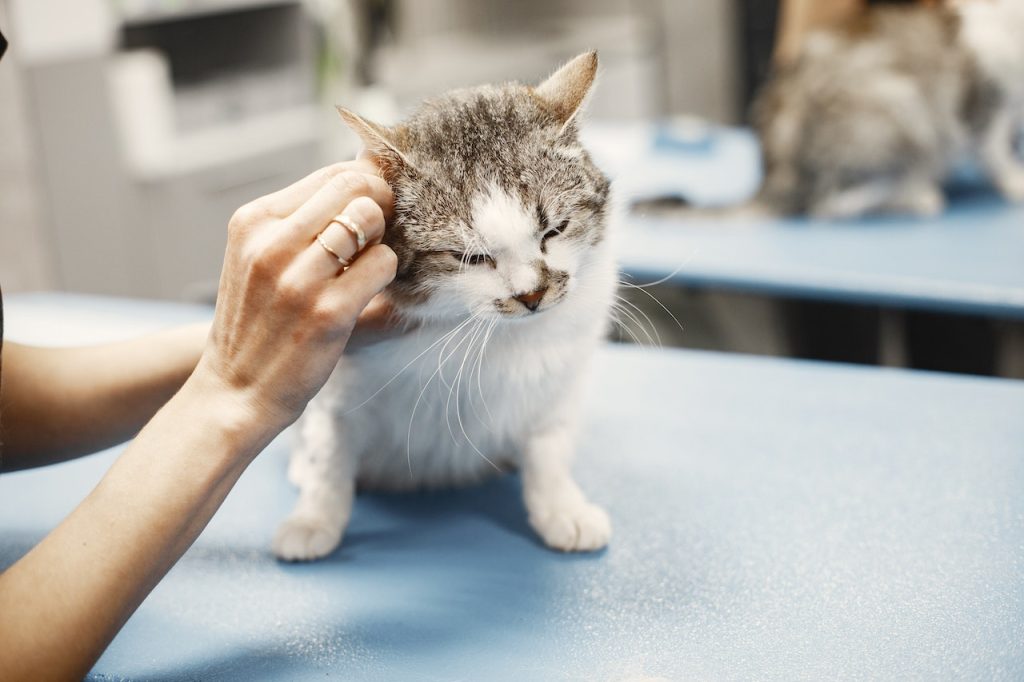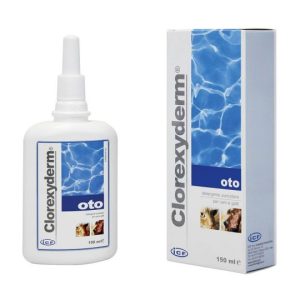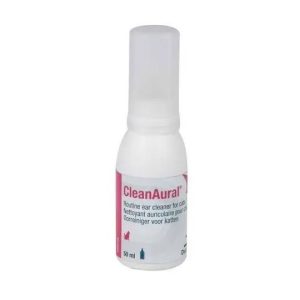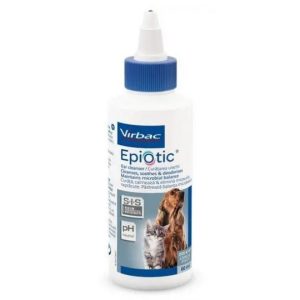Vetpharmacy.co.uk Cookie Policy : We use cookies to enhance your user experience. To find out more please view our cookie policy
Keeping Your Cat's Ears Healthy: A Guide to Preventing Ear Problems

Cats are wonderful companions known for their agility, independence, and adorable ears. Those furry ears not only enhance their appearance but also play a crucial role in their overall health and well-being. Just like any other part of your feline friend's body, their ears require proper care and attention. Regular ear maintenance can prevent a host of potential problems and ensure your cat remains happy and healthy. In this blog, we'll discuss essential tips on how to keep your cat's ears healthy and spot potential issues early on.
Regular Cleaning
One of the best ways to maintain your cat's ear health is to incorporate regular ear cleaning into their grooming routine. Using a soft, damp cloth or a pet-specific ear cleaning solution, gently wipe the outer part of your cat's ears. Avoid inserting anything into the ear canal, as this could lead to injury or infection. Regular cleaning helps remove dirt, wax, and debris, reducing the risk of infections.
Pay Attention to Warning Signs
Cats are masters at hiding discomfort, but there are tell-tale signs that could indicate an ear problem. Watch out for symptoms such as excessive scratching of the ears, head shaking, a foul smell coming from the ears, redness or swelling or an accumulation of dark-coloured wax. If you notice any of these signs, it's essential to consult your vet promptly.
Prevention is Better than Cure
Preventative measures can go a long way in ensuring your cat's ear health. Keep your cat's living environment clean and free from parasites as ear mites can be a common cause of ear issues. Regularly check your cat's ears for any signs of trouble, especially if your feline friend spends time outdoors or interacts with other animals.
Proper Diet and Nutrition
Believe it or not, your cat's diet can have a significant impact on their ear health. A balanced diet rich in essential nutrients, especially omega-3 fatty acids, can help reduce inflammation and promote healthy skin and fur, including the ears. Consult with your veterinarian to determine the best diet for your cat's specific needs.
Regular Vet Check-ups
Regular veterinary check-ups are crucial for your cat's overall health, including their ears. During these check-ups, the vet will examine your cat's ears for any signs of infection or abnormalities. Early detection of problems can lead to faster treatment and a better outcome.
Avoid Excessive Moisture
Moisture in your cat's ears can create an ideal environment for bacteria and yeast growth, leading to ear infections. When bathing your cat, take care not to get water into their ears.
Safe Ear Cleaning Techniques
As mentioned earlier, never insert cotton swabs or any other objects into your cat's ear canal. Doing so risks damaging the delicate structures inside the ear and may push debris deeper, causing more harm than good. Always opt for gentle, external cleaning and seek professional help if you suspect any issues within the ear canal.
Conclusion: Your cat's ears are not only adorable but vital for their sensory perception and communication. Taking good care of their ears is an essential part of responsible pet ownership. By incorporating regular cleaning, being vigilant about potential issues, and seeking prompt veterinary attention when needed, you can ensure your feline friend enjoys a lifetime of healthy ears and a happy, purrfect life. Remember, a little effort on your part can go a long way in preventing discomfort and ensuring your beloved companion's overall well-being.


